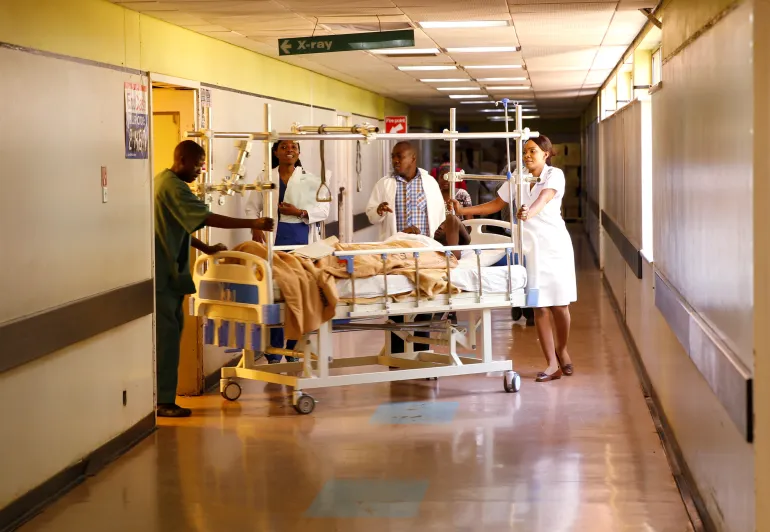
MEDICAL insurance companies in Zimbabwe have a significant impact on healthcare decisions. Their policies can either support or undermine the local healthcare system.
Currently, some insurance providers favour foreign treatment options, even when local hospitals have the capacity and expertise to offer comparable care. This raises concerns about the rationale behind these choices and their impact on the country’s healthcare system.
The benefits of supporting local healthcare are multi-faceted. By choosing local hospitals, patients can avoid the high costs associated with overseas treatment, thereby retaining foreign currency within Zimbabwe and benefiting both individuals and the wider economy.
Local hospitals, such as Trauma Centre Borrowdale, Avenues Clinic, and St Anne’s, provide high-quality care with cutting-edge technology and highly-qualified specialists.
Prioritising these facilities can curb unnecessary medical tourism, reducing costs and complications associated with traveling abroad for treatment.
However, the consequences of unnecessary referrals are far-reaching. Consistently defaulting to foreign referrals undermines confidence in local care and results in a significant outflow of foreign currency.
Unnecessary transfers not only inflate medical costs, especially when destinations such as India, Turkiye are involved, but also pose health risks to patients.
Long flights can worsen medical conditions, cause discomfort, and elevate health risks.
- Mavhunga puts DeMbare into Chibuku quarterfinals
- Bulls to charge into Zimbabwe gold stocks
- Ndiraya concerned as goals dry up
- Letters: How solar power is transforming African farms
Keep Reading
For instance, a recent case involving a first-degree burns patient being treated at Trauma Centre Borrowdale, despite having access to top-level, fully equipped facilities, raises questions about the motives behind such decisions.
Doctor Vivek Solanki emphasises the importance of local care, stating: “The Trauma Centre has world-class facilities and patients need to be treated at home.”
He also notes that “cheaper” treatments in Türkiye and India do not necessarily mean better treatment.
“There are numerous complications post-surgery and then we have to sort them out here. More recently, we see people who went for dental implants to India having challenges as the ‘implants’ fell out soon after returning,” Solanki said.
“One developed severe sepsis requiring surgery in Harare. We have the expertise and equipment at home. It is a matter of knowing that the grass is not always greener on the other side.”
A call to action is necessary to reassess referral practices and prioritise local expertise and infrastructure.
By supporting local healthcare, stakeholders can restore confidence in Zimbabwean healthcare, reduce outward medical tourism, and align with national goals.
With local expertise investing in local excellence, the return from the Diaspora of various experts ranging from oncology, obstetrics and gynaecology, orthopedics, has resulted in nearly all procedures being done locally.
Cases that can be done here keep being sent across borders, these include: cardiac stenting, orthopedics, neurosurgery, obstetrics, keyhole surgery, and many more.
Being treated at home will lead to better resource utilisation, improved patient outcomes, and renewed trust in Zimbabwean healthcare.
In 2024, Zimbabwe spent over US$400 million on healthcare outside the country, doubling the amount recorded in 2022.
This highlights the need for a unified effort to build a stronger, self-reliant healthcare system that benefits all Zimbabweans.
By prioritising local care, Zimbabwe can reduce its reliance on foreign medical treatment and strengthen its healthcare infrastructure, ultimately benefiting the entire nation.






